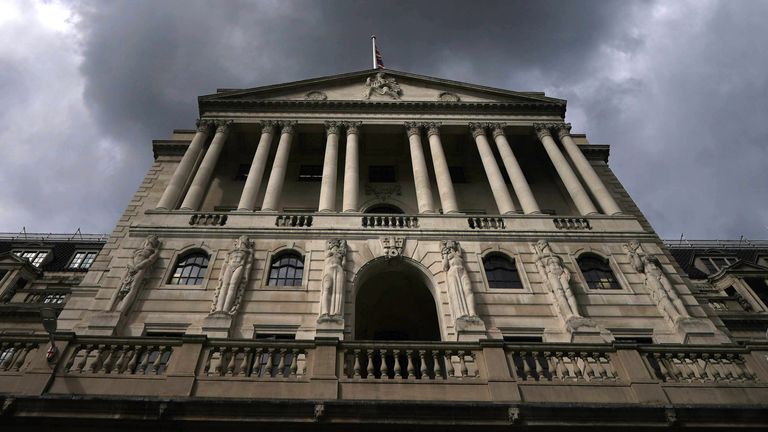There are a few ways one could report the latest economic growth forecasts from the International Monetary Fund (IMF).
The first way is to declare that Britain’s economy is heading for the buffers.
Its economy will grow next year at the slowest rate in the G7 group of leading industrialised economies (0.6%). This is considerably lower than, say, the 1.2% growth expected in the euro area or the 1.5% expected in the US.
And this is probably the way many outlets will report the numbers this morning.
The IMF’s World Economic Outlook, published every six months by the Washington-based institution, is arguably the single most important international economic forecast out there. Who could doubt it?
But it turns out there are a couple of question marks about the IMF’s latest UK growth forecasts.
The most important one is buried away in a paragraph about interest rates: “The Federal Reserve’s policy rate is expected to peak at its current level of about 5.4%, the Bank of England to raise its to peak at about 6%.”
There’s an issue here, beyond the grammar. While it was certainly true that a few months ago UK interest rates were indeed expected to peak at around 6%, that hasn’t been the case for some time.
Today, after a run of lower-than-expected inflation data, the betting in financial markets is that the Bank rate has already peaked at 5.25%.
The difference between 5.25% and 6% interest rates is, in economic terms, rather a lot.
Those higher rates would mean considerably more pressure on those with mortgages, more pain in the high street, more saving, less spending and, all told, a weaker economy.
Working out precisely how much weaker is no mean feat, but assuming 5.25% interest rates instead of 6% could quite plausibly add 0.1 or 0.2 percentage points to the UK’s growth rate next year.
That in turn would mean the UK was no longer the weakest economy in the G7, with that unhappy distinction going instead to Italy.
So, the second way to report these numbers is to put a mighty big asterisk next to the UK number and to warn that the number is not altogether reliable because it doesn’t reflect the current picture for interest rates.
Indeed, according to a well-placed source, the interest rate expectations baked into the IMF’s forecasts date from all the way back in August.
While the IMF failed to respond to queries from Sky News about this detail of its forecasts, its chief economist later told a press conference that while its report cited expectations that UK rates would rise to 6%, its actual forecasts were based on a peak of 5.5%. While this would have a bearing on the forecasts, it would be smaller than an expectation that rates would hit 6%.
Read more business news:
Big easing in grocery inflation aided by ‘jump in amounts spent on discounted goods’
Flights cancelled while oil and arms stocks surge amid Israel-Hamas war
This isn’t the only reason to be a bit sceptical about the scale of the IMF’s downgrade of the UK economy in this latest report. It acknowledges too that its forecasts don’t incorporate the latest set of revisions of the economy from the Office for National Statistics – upwards revisions which completely changed the complexion of Britain’s post-pandemic economic path.
This is less likely to have as much of an impact on the year-on-year growth figures as the path of interest rates, but all the same, it adds to the sense that we should take these figures with a fair few grains of salt.
Even so – even when you’ve taken these issues into account – there is another, better way one could describe the outlook for the UK economy: not good. It may not be the weakest in the G7, but it’s still barely growing. And nor, for that matter, are many European economies.
The reality is that the outlook for the global economy is disappointing.
Global growth is expected to be well below typical speeds this year and next. China’s economy is facing serious trauma in the face of a property slump. While the US economy is doing far better than many had predicted, its expansion rate is, by American standards, disappointing.
Britain, in short, is not doing well. But, contrary to the impression you might get from glancing at the IMF’s numbers, it is far from an outlier.


